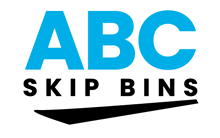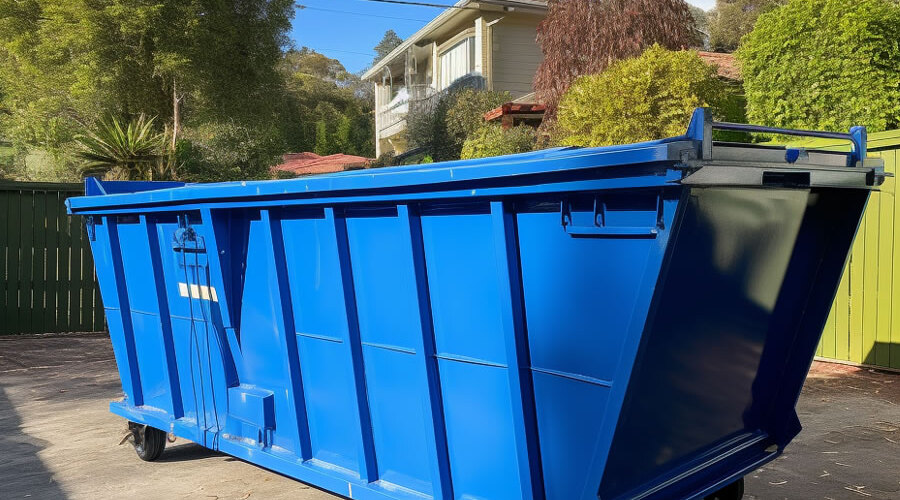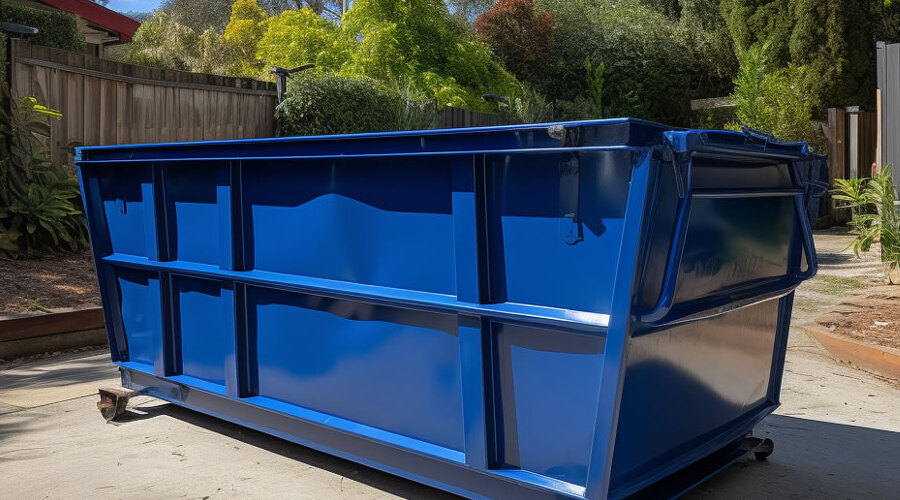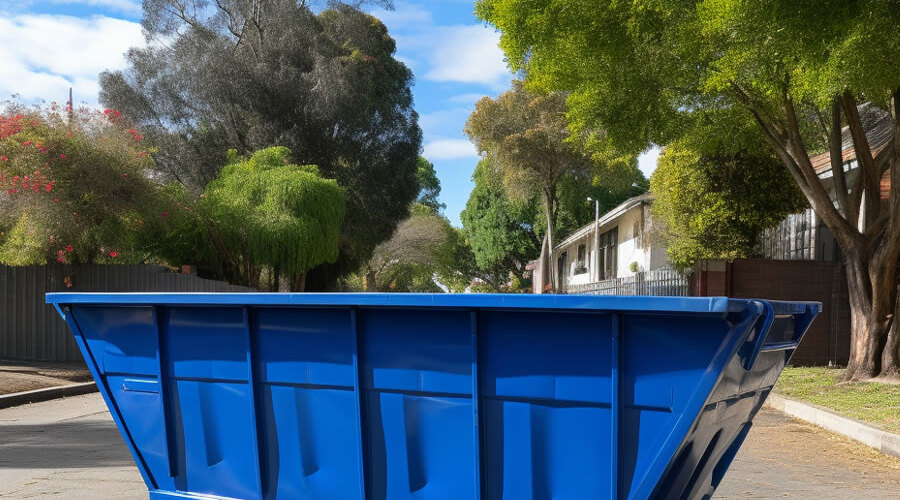Maintenance and Cleaning of Skip Bins
A Comprehensive Guide
Skip bins are an essential tool for managing waste and keeping work sites clean
However, like any equipment, they require regular maintenance and cleaning to remain functional and sanitary.
Neglecting your skip bin can lead to clogged and overflowing bins, foul odours, pest infestations, and even safety hazards.
Our friendly skip bins professionals will walk through the key steps and best practices for maintaining and cleaning your skip bins.
Just follow these tips for different types of waste containers that are clean, secure, and ready to handle debris.
Dirty and Poorly Maintained Skip Bins
- Buildup of debris, grease, and residue: Skip bins business can quickly accumulate leftover food, thick layers of dirt, sticky grease, and other debris. This leaves containers dirty and makes waste stick to the bottom and sides.
- Strong, unpleasant odours: Smelly trash combined with a buildup of grime leads to the option of skipping bins that reek of rotting garbage and industrial filth. The stench only gets worse over time.
- Pests: Flies, maggots, rats, and other vermin are attracted to and can infest messy skip bins that aren’t cleaned regularly.
- Clogged openings: When debris isn’t cleared out, it can clog and block the opening of skip bins, making it hard to load more waste.
- Injuries and health hazards: Excess grease and grime create slippery surfaces, while cluttered contents present tripping dangers. Pests spread disease.
- Overflowing waste: Skip bins overflow when they aren’t emptied before becoming full. This makes a mess and leads to even more cleanup work.
- Difficulty unloading: Compacted, stuck-on waste takes more time and effort to unload from a dirty skip bin. Grease and grime also smear the unloading vehicle.
Proper Skip Bin Cleaning and Maintenance
Luckily, it’s easy to avoid these problems and keep your skip bins clean and well-maintained. Just follow these simple maintenance tips and cleaning procedures on a regular basis.
1. Schedule Consistent Cleanings
The first step is to assign cleaning responsibilities and set a consistent skip bin cleaning schedule. Daily or weekly cleanings are ideal for high-use bins. For lighter use, clean every one to two weeks at minimum. Check bins more frequently for any signs they need cleaning sooner.
Having a set schedule and delivery prevents buildup and overflowing and it’s easier to maintain cleanliness than tackle a huge mess later. Add cleaning days to your calendar so they don’t slip through the cracks.
2. Remove Waste Promptly
Don’t allow bins to overfill before emptying them. Full skip bins are messy, hard to clean fully, and likely to spill over. Plan adequate waste removal based on your skip bin size and how quickly each fills up.
Check bins daily and empty any that are more than three-quarters full. Remember to account for compacting. Three-quarters full of dense waste may exceed your bin’s capacity.
3. Clear Out Debris and Grease
Before rubbish removal, washing, use shovels, scoops, or other tools to remove caked-on debris and thick grease deposits. This makes washing easier and ensures built-up gunk doesn’t remain in the bin.
Pay special attention to the toughest grime on the bottom, corners, and any crevices. Removing solid debris first also keeps drains clear when you wash the bin.
4. Wash Bins Thoroughly
Use a high-pressure washer or hose to clean bins inside and out. Aim water to rinse away remaining loose debris and lift off any clinging residue.
Add an all-purpose cleaner or degreaser to the water for extra cleaning power against tough grease and grime. Use a long brush or broom to scrub the sides, corners, and other tight areas if needed.
Rinse thoroughly when finished to eliminate cleaning solution residue. Avoid methods like solvents or acid washing that damage the bin.
5. Sanitise Regularly
Sanitising kills germs, deodorises, and helps control pests. Use a diluted bleach solution or commercial sanitising product monthly or whenever bins get extremely dirty.
Mix sanitiser in a garden sprayer to easily coat all interior surfaces. Let it soak briefly before rinsing clean. Allow bins to fully dry before use.
6. Inspect and Make Repairs
While cleaning, check skip bins for any damage needing repair. Look for:
- Cracks, holes, or dents
- Loose or detached parts
- Rust and corrosion
- Jammed or worn wheels and rollers
Fix any issues immediately to keep bins safe and functional. Major damage may require replacing the entire bin.
7. Lock Lids at Day’s End
Leaving lids open invites pests and rainwater to infiltrate a skip bin. Get in the routine of locking lids shut at the end of each day.
For roll-off open tops, tie lightweight tarps or mesh nets over the open space. Bungee cords or ropes secure them in windy conditions.
8. Use Bin Liners
Disposable liners help keep skip bin interiors cleaner between washings. They’re also great for particularly messy waste that’s tough to clean off bare metal.
Look for heavy-duty liners made for dumpsters and waste containers. Make sure liners fit your bin size and shape properly.
Special Cleaning Tips for Food Waste Bins
Bins used for food waste require extra precautions to control messes, odours, and pests. Follow these additional tips:
- Sanitise weekly using bleach solution or ammonia. These disinfectants kill more germs than typical cleaners.
- Consider commercial deodorisers made to combat food waste odours. Apply to the interior as needed.
- Absorbent packets can soak up excess moisture that makes food bins slimy. Look for antimicrobial types that inhibit bacteria growth.
- Use enzyme cleaner monthly to digest clinging organic matter, eliminating food sources for pests.
- Inspect bins closely for maggots and immediately clean any infestations you find. They multiply rapidly.
- Line food waste bins with compostable bags to reduce staining and smells.
Maintain Outdoor Skip Bins to Prevent Wind and Rain Damage
For skip bins kept outdoors, take a few additional precautions:
- Check bins after storms for any damage or shifting from high winds. Promptly repair any issues.
- Make sure lids close tightly so rain can’t seep into contents and overflow the bin.
- Keep bins positioned on sturdy, level ground so they don’t tip in heavy winds.
- Wash outdoor bins more frequently since grime builds up faster outside.
- Keep the area around bins clean—mud, leaves, and debris are messy to unload through.
- In snowy weather, clear accumulated snow off bin lids so they open properly.
Work Safety Tips for Skip Bin Cleaning
Cleaning different skip sizes involves handling both sharp debris and hazardous chemicals. Keep these work safety guidelines in mind:
- Wear thick work gloves when shoveling a wide range of waste and scrubbing bins by hand.
- Use caution lifting heavy bin lids—attach props if needed to avoid slamming.
- Wear eye protection and closed-toe shoes during power washing.
- Follow safe practices for handling cleaning chemicals like bleach. Never mix products.
- Use an N95 respirator mask and ventilate area during cleaning if chemical fumes are strong.
- Use caution on ladders when cleaning tall commercial bins. Maintain three-point contact while climbing.
- Never enter or lean into a bin—gasses inside can be toxic.
- Work in pairs when cleaning large bins for safety. Spot each other when using ladders.
Skip Bin Service and Cleaning FAQ
How often should I clean my skip bins?
Ideally, clean skip bins weekly or every 2 weeks at minimum per cubic metre. High-use bins may need daily cleaning.
What’s the best way to clean a skip bin?
Remove loose debris, then wash thoroughly with a pressure washer or hose and all-purpose cleaner. Finish by sanitising the interior with bleach solution.
How can I get rid of odours in my bins?
Regular cleaning plus monthly sanitising helps control odours. Deodorising products can also mask smells between cleanings.
What should I use to clean tough grease and grime?
Degreasing cleaners or solutions help lift heavy grease deposits. Dish soap also works well on grease.
How do I keep pests out of my bins?
Lock lids, empty frequently, clean regularly, and sanitise to deter pests. Use antimicrobial bin liners as well.
Conclusion
Keeping your green waste containment equipment well-maintained is a crucial part of any construction project or waste management program.
While it may seem like a thankless task, proper skip bin cleaning and care pays dividends through enhanced safety, compliance, productivity, and professionalism.
By assuming responsibility for your skip bins and implementing a consistent cleaning routine, you remove the stress and hassles of overflowing containers and unpleasant, hazardous work conditions.
Your site operates smoother with reliable debris containment right on hand.
Don’t wait for major issues to arise before addressing skip bin maintenance.
Follow these guidelines to tackle cleaning needs proactively and prevent severe headaches down the road.
When top professionals like yourself set an example through your diligent equipment care, it motivates others to take pride in a cleaner, safer, and more efficient work environment.



